Abstract
The declaration in 1980 that smallpox had been eradicated reawakened interest in disease eradication as a public health strategy. The smallpox programme's success derived, in part, from lessons learned from the preceding costly failure of the malaria eradication campaign. In turn, the smallpox programme offered important lessons with respect to other prospective disease control programmes, and these have been effectively applied in the two current global eradication initiatives, those against poliomyelitis and dracunculiasis. Taking this theme a step further, there are those who would now focus on the development of an inventory of diseases which might, one by one, be targeted either for eradication or elimination. This approach, while interesting, fails to recognize many of the important lessons learned and their broad implications for contemporary disease control programmes worldwide.
Full text
PDF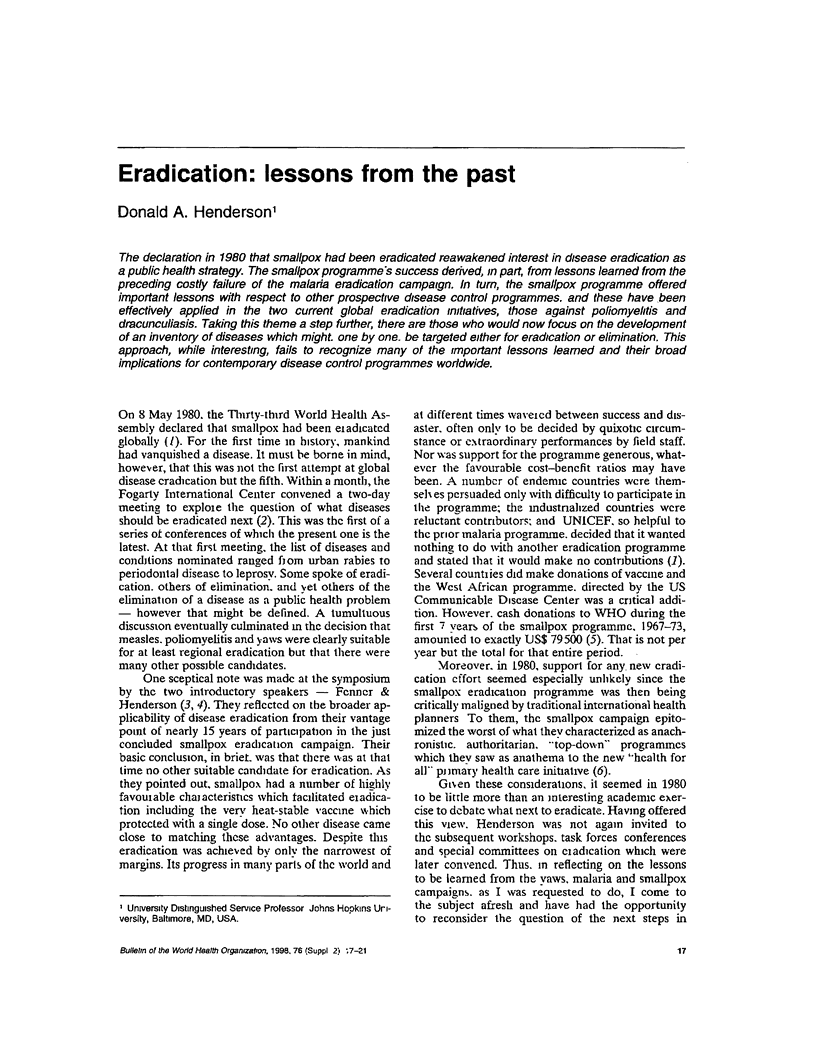
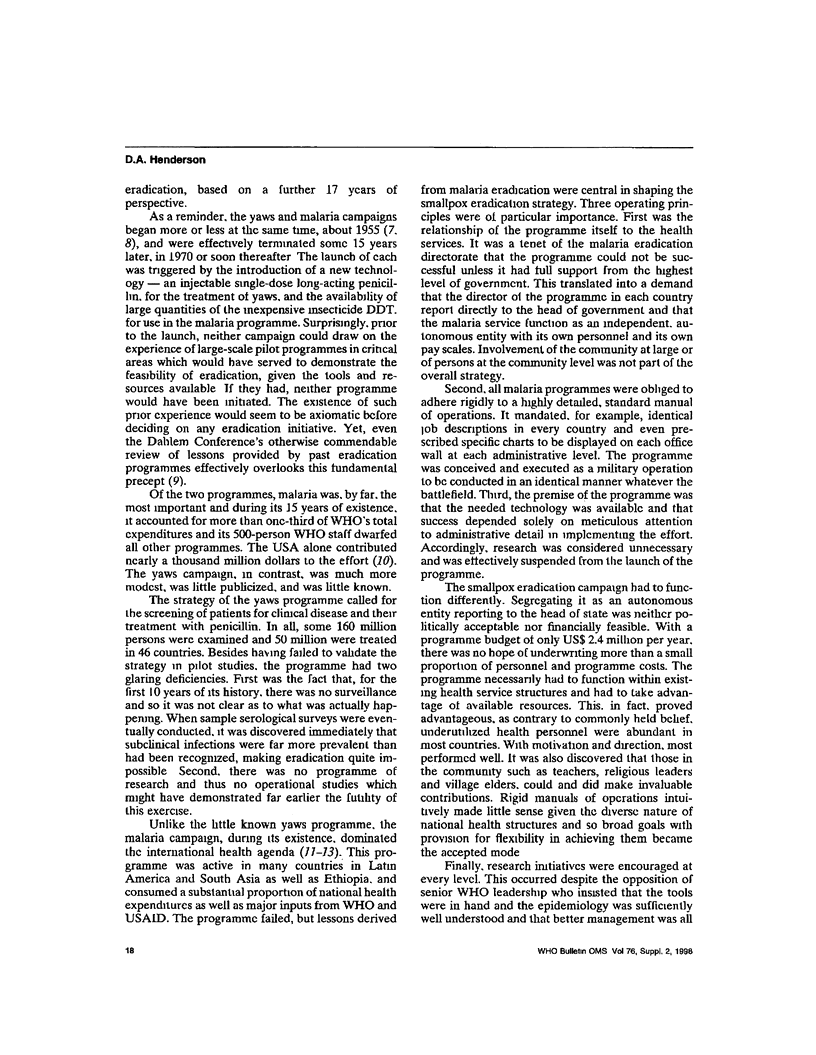
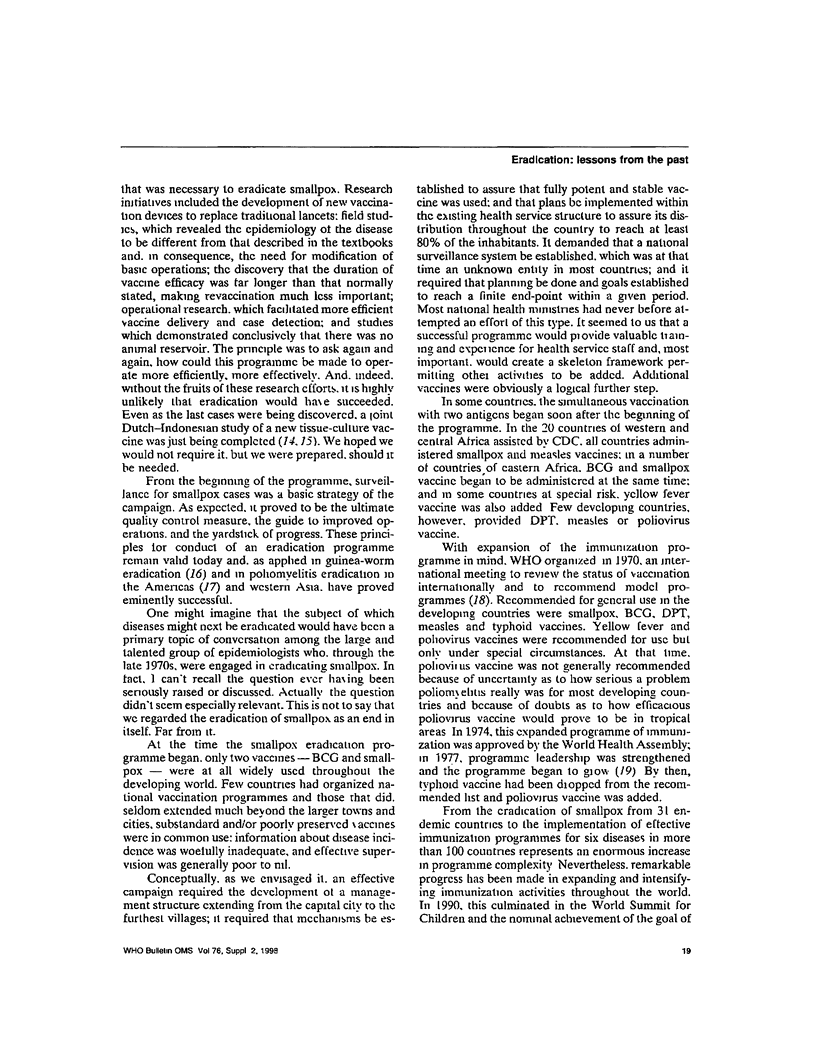
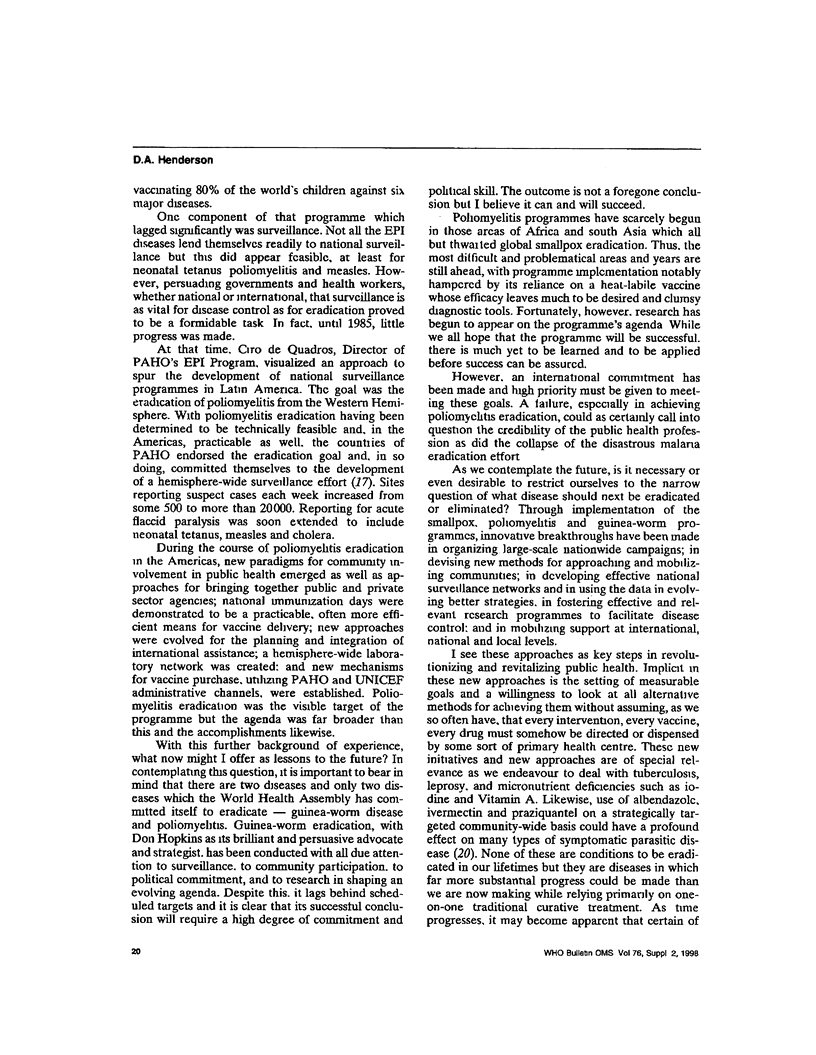
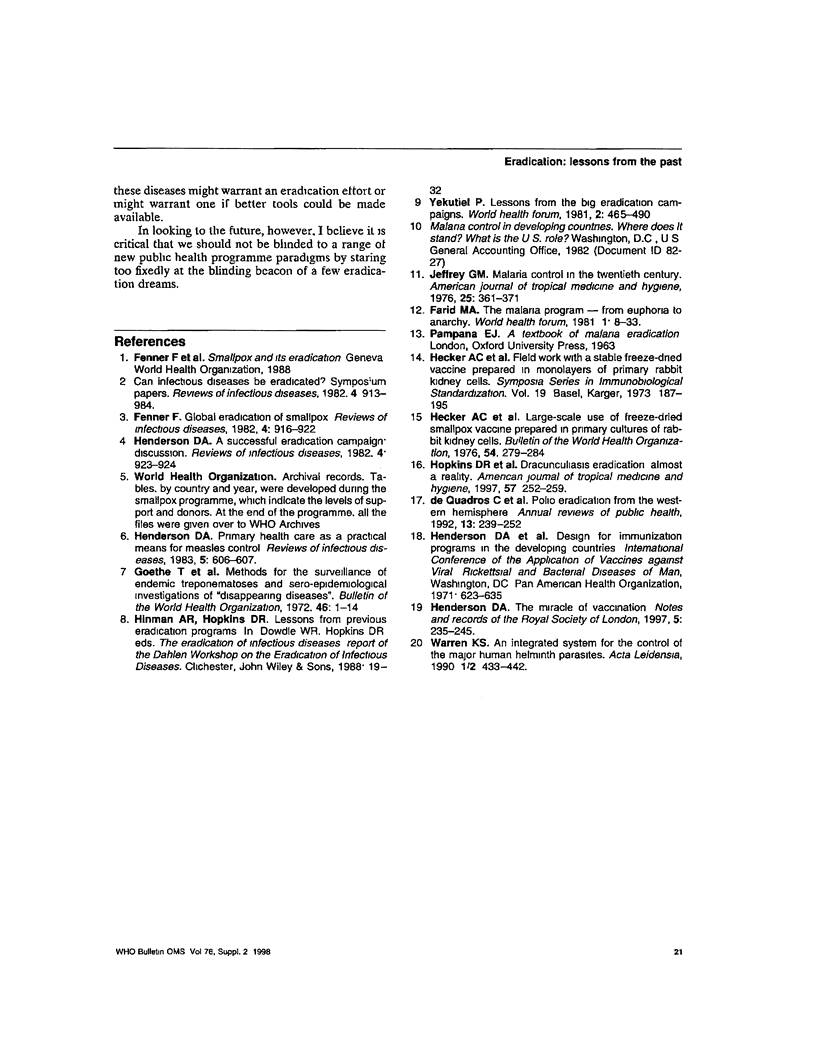
Selected References
These references are in PubMed. This may not be the complete list of references from this article.
- Warren K. S. An integrated system for the control of the major human helminth parasites. Acta Leiden. 1990;59(1-2):433–442. [PubMed] [Google Scholar]
- de Quadros C. A., Andrus J. K., Olive J. M., Guerra de Macedo C., Henderson D. A. Polio eradication from the Western Hemisphere. Annu Rev Public Health. 1992;13:239–252. doi: 10.1146/annurev.pu.13.050192.001323. [DOI] [PubMed] [Google Scholar]


